Battle for Free Speech: Advocate Nilesh Ojha Challenges Five-Judge Bench’s Gag Order, Seeks Restoration of Video, Discharge, Compensation, and Punishment for Informant Who Misled the High Court.
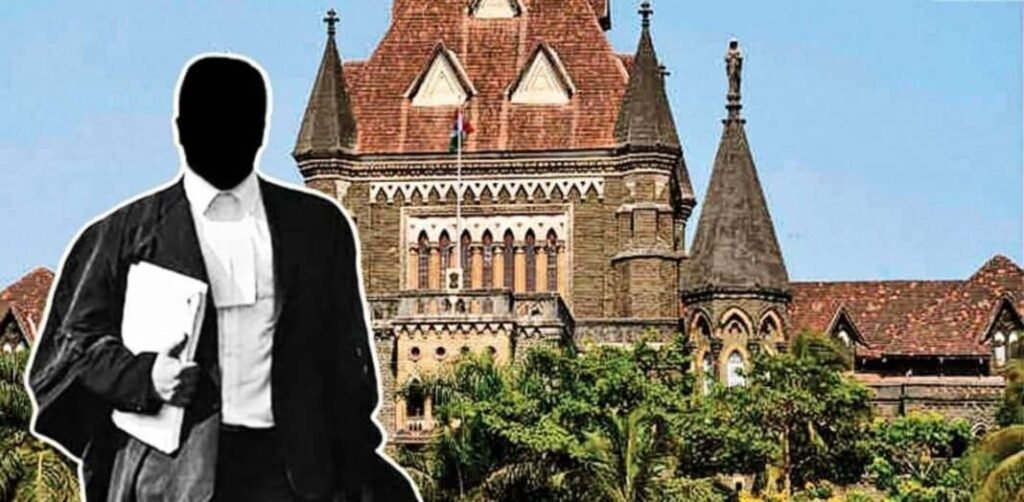
canvas
An application for recall of the order is filed in the High Court.
He has relied upon the letter issued by the Attorney General of India, which expressly declined sanction for contempt proceedings against Advocate Ojha and Advocate Prashant Bhushan, on the basis that truthful exposures of judicial corruption and misconduct are not contemptuous under Indian law.
The Application is extensively supported by numerous binding judgments of the Hon’ble Supreme Court, wherein, under similar factual circumstances, contempt proceedings were either dropped at the threshold, or regret was subsequently expressed by the concerned High Courts and even by the Supreme Court itself, acknowledging that the contempt actions had been inappropriate or excessive.
Many senior advocates and members from various legal bodies, including the Indian Bar Association (IBA), Supreme Court Bar Association (SCBA), Bombay Bar Association (BBA), and the Advocates Association of Western India (AAWI), are set to represent Advocate Nilesh Ojha in the ongoing contempt proceedings.
The lead counsel for Adv. Ojha will be Adv. Ghanshyam Upadhyay, a well-known criminal lawyer. He will be supported by a strong team of renowned advocates from across the country, reflecting the wide legal support backing Advocate Ojha’s stand for constitutional rights and judicial accountability.
It is noteworthy that in a previous contempt case before the Supreme Court of India, nearly 200 practicing Supreme Court advocates appeared to represent Adv. Nilesh Ojha — a historic record for collective legal representation in any contempt proceeding.
Mumbai | 27th April 2025 | Special Correspondent
In a development that could significantly shape the future contours of freedom of speech, judicial accountability, and contempt jurisprudence in India, the National President of the Indian Bar Association, Advocate Nilesh Ojha, has filed a landmark Application (spanning approximately 700 pages) before the Hon’ble Bombay High Court.
In a landmark move that could significantly redefine the balance between freedom of speech, judicial accountability, and contempt jurisprudence in India, Advocate Nilesh Ojha, National President of the Indian Bar Association, has filed a comprehensive Application spanning approximately 700 pages before the Hon’ble Bombay High Court.
Through this important legal step that could change how India balances freedom of speech, judicial accountability, and contempt of court laws, Advocate Nilesh Ojha, challenges the very basis of the contempt proceedings started against him by a Five-Judge Constitution Bench. Through this Application, Advocate Ojha seeks to defend key constitutional principles — especially the need for transparency, accountability, and the right of citizens and advocates to speak the truth about the judiciary without fear of punishment or retaliation.
The Application not only contests the legality and propriety of the contempt notice and the accompanying gag order but also raises serious questions concerning the limits of judicial authority, the protection of bona fide criticism, and the standards of fairness that must govern proceedings affecting an individual’s liberty, reputation, and professional standing.
By invoking binding precedents laid down by Constitution Benches of the Hon’ble Supreme Court, and relying on official communications of the Attorney General of India expressly refusing sanction for contempt on similar grounds, Advocate Ojha’s Application seeks to reaffirm that truthful disclosures regarding judicial misconduct — far from constituting contempt — are acts of constitutional duty under Article 51A(h) and are essential for maintaining the purity of the justice delivery system.
This Application is thus not merely a defense against an individual charge of contempt but represents a broader constitutional assertion: that open criticism, truthful publication, and institutional accountability are indispensable pillars of a democratic judiciary, and any attempt to suppress such acts under the guise of contempt would amount to a serious assault on fundamental rights enshrined under Articles 14, 19(1)(a), and 21 of the Constitution.
In the case of The Registrar (Judicial) High Court of Madras vs. Mr. S. Shankar 2022 SCC OnLine Mad 4522, where it is ruled as under;
“Making specific allegations of corruption against a Judge, based on prima facie evidence would definitely fall within the ambit of the right to freedom of speech and expression. It is the right of the contemnor.”
The Application challenges the suo motu contempt proceedings initiated against him by a Five-Judge Constitution Bench of the Court and seeks multiple reliefs, including discharge from the contempt notice, quashing of the Bench’s injunction order, restoration of deleted video content, initiation of criminal action against the anonymous informant, and compensation for violation of fundamental rights guaranteed under the Constitution.
Importantly, the Application is supported by a large volume of documentary evidence and relies heavily on authoritative precedents laid down by Constitution Benches of the Hon’ble Supreme Court. Among the critical documents annexed are:
- Letters issued by the Attorney General for India, wherein sanction was expressly refused to initiate contempt proceedings against Advocate Nilesh Ojha and Advocate Prashant Bhushan on similar grounds — reaffirming that making allegations against Judges based on truth and public interest does not constitute contempt of court under Indian law;
- Media reports and Court Records evidencing that Advocate Ojha had duly filed recusal applications before the concerned Bench, contrary to the misleading claims made by the anonymous informant on whose basis the cognizance is taken.
The Application asserts that the action taken against Advocate Ojha not only violates binding legal principles but also strikes at the heart of constitutional protections under Articles 14, 19(1)(a), and 21.
It seeks to reinforce the position that the right to speak the truth, especially concerning judicial misconduct, is protected speech, and any suppression of such expression is antithetical to the rule of law and the fundamental values enshrined in the Constitution.
The Application arises out of suo motu contempt proceedings initiated against Advocate Ojha by a Five-Judge Constitution Bench of the Bombay High Court through an order dated 08.04.2025. In the impugned order, the Bench — comprising Hon’ble Chief Justice Shri Alok Aradhe, and Hon’ble Justices Chandurkar, Sonak, Ghuge, and Gadkari — issued a show-cause notice against Advocate Ojha for his public statement exposing alleged forgery and irregularities committed by Hon’ble Justice Revati Mohite-Dere. Simultaneously, the Court passed an injunction directing the removal of certain videos from YouTube and other platforms.
Pursuant to the order, a show-cause notice was served upon Advocate Ojha by the High Court Registry. Advocate Ojha has now filed a comprehensive Application seeking:
- Discharge from the contempt notice;
- Quashing of the Five-Judge Bench’s order, particularly the injunctive relief directing suppression of speech;
- Restoration of the deleted video content;
- Action against the anonymous informant for suppression of material facts and perjury; and
- Compensation from the State for violation of fundamental rights guaranteed under Articles 14, 19(1)(a), and 21 of the Constitution of India.
The Application is extensively supported by numerous binding judgments of the Hon’ble Supreme Court, wherein, under similar factual circumstances, contempt proceedings were either dropped at the threshold, or regret was subsequently expressed by the concerned High Courts and even by the Supreme Court itself, acknowledging that the contempt actions had been inappropriate or excessive. In several such cases, larger Benches of the Supreme Court also went to the extent of passing strictures against errant High Court Judges, criticizing the misuse of contempt jurisdiction to suppress legitimate criticism or disclosures.
Furthermore, in multiple precedents cited in the Application, the Hon’ble Supreme Court awarded monetary compensation to the aggrieved individuals for the violation of their fundamental rights under Articles 14, 19(1)(a), and 21 of the Constitution, resulting from wrongful or mala fide initiation of contempt proceedings. Notably, the Application highlights instances where criminal prosecution under Section 211 of the Indian Penal Code was directed against those who maliciously instituted frivolous or false contempt proceedings with an intent to harass or intimidate citizens who exposed judicial misconduct.
In addition to citing these precedents, the Application also relies upon important case laws where, upon serious allegations being raised against sitting Judges, Chief Justices and even Chief Justices of India were summoned as witnesses, either for cross-examination or were directed to file personal affidavits in response to the allegations leveled against them. These cases demonstrate that the judiciary recognizes that no individual, however high in office, is exempt from accountability, and that the principles of natural justice and fairness apply with equal force even when allegations concern those occupying the highest judicial positions.
The tenor and language of the Application filed by Advocate Nilesh Ojha clearly suggest that if a proper trial ensues in the present matter, Hon’ble Justice Revati Mohite-Dere and Hon’ble Chief Justice Shri Alok Aradhe may likely have to be summoned as witnesses in their personal capacities, to face cross-examination on the allegations raised against them, consistent with the binding practices recognized in past constitutional jurisprudence.
Moreover, the Application raises serious objection — grounded in authoritative Supreme Court judgments — to the participation of Hon’ble Chief Justice Shri Alok Aradhe as a member of the adjudicating Bench. It is pointed out that since the Chief Justice, in his administrative capacity, had taken the decision to initiate suo motu contempt proceedings against Advocate Ojha, he stands disqualified from sitting in judicial adjudication of the very same proceedings.
The fundamental principle of law, recognized in numerous precedents, is that no person can be a Judge in his own cause (nemo judex in causa sua), and once the Chief Justice exercised administrative discretion in favor of initiating proceedings, he cannot thereafter act as an impartial judicial arbiter.
The Application further highlights that the Chief Justice has not disclosed the identity of the informant who supplied the alleged information and pen drive which formed the basis for the initiation of contempt proceedings. By withholding this information and acting upon undisclosed material, the Chief Justice has, in effect, become a material witness in the case.
Consequently, under the well-settled principles of judicial disqualification and conflict of interest, Hon’ble Chief Justice Shri Alok Aradhe ought not to sit on the Bench hearing the present contempt matter, and his continued participation vitiates the fundamental fairness, neutrality, and legality of the entire proceeding.
Thus, the Application not only challenges the contempt notice and injunction order but also seeks to uphold foundational constitutional guarantees — ensuring judicial impartiality, transparency, protection of truth-telling, and the safeguarding of the dignity of the individual against arbitrary or motivated misuse of contempt jurisdiction.
Core Issues Raised by Advocate Ojha:
1. Freedom to Publish the Truth is Constitutionally Protected:
Advocate Ojha on the basis of binding precedents has forcefully argued that:
- Publication of truthful material, even if it exposes corruption or misconduct by a sitting Judge, does not amount to contempt.
- Under Article 51A(h) of the Constitution, exposing corruption in public life is a constitutional duty of every citizen.
- The Hon’ble Supreme Court has consistently ruled that Courts cannot suppress publication of truthful facts, unless it is strictly necessary to protect the fairness of a pending trial — mere embarrassment to a Judge is not sufficient grounds to impose a publication ban.
- The Contempt of Courts Act, 1971 is intended to protect the administration of justice, not to shield individual Judges who may have engaged in misconduct.
Thus, the deletion of videos and the suppression of free speech through judicial orders violates the constitutional guarantee of freedom of expression under Article 19(1)(a).
2. Fatal Defects in the Show-Cause Notice:
The Application points out that:
- The notice served to Advocate Ojha is against the High Court Rules, 1994, vague and devoid of a clear, formulated charge, contrary to mandatory legal requirements.
- Contempt proceedings are quasi-criminal in nature; therefore, the alleged contemnor must be precisely informed of the allegations against him.
- Absence of a specific charge renders the notice and proceedings legally unsustainable, violating the fundamental principles of natural justice.
3. Unlawful Inclusion of Third Parties:
Advocate Ojha has highlighted that:
- Contempt proceedings are strictly between the Court and the alleged contemnor. Third party impledment is prohibited by the Constitution bench judgment.
- The participation or intervention of third interested parties such as the Bombay Bar Association (BBA) — against the mandatory directions of the Supreme Court — vitiates the impartiality and fairness of the proceedings. Additionally when the BBA and AAWI have shown open bias in favor of the concerned Judge. The inclusion of such partisan actors transforms the proceeding into an adversarial contest, contrary to the nature of judicial contempt jurisdiction.
4. Criminal Misconduct by the Anonymous Informant:
The Application accuses the unnamed informant who is alleged to have provided information for :
- Suppressing crucial facts, such as the filing of a recusal application by Advocate Ojha on 11.07.2024;
- Falsely claiming that Advocate Ojha had not sought recusal of Hon’ble Justice Revati Mohite-Dere, even though recusal submissions were duly made on affidavit on 11.07.2024 and widely reported in mainstream media.
- The informant’s actions amount to perjury and criminal contempt, punishable under Sections 2(c) and 12 of the Contempt of Courts Act, 1971, and Sections 192, 193, and 211 of the Indian Penal Code.
Advocate Ojha has sought criminal action against the said informant for maliciously abusing the judicial process.
5. Internal Inconsistencies and Legal Unviability of the Order:
Advocate Ojha points out glaring contradictions within the impugned order:
- The Bench suggests that Advocate Ojha should have raised his concerns about bias by filing a recusal application before the concerned Judge.
- Simultaneously, in the same order it condemns the very statement as ex facie scandalous.
This contradictory reasoning, Advocate Ojha submits, makes the order legally untenable, arbitrary, and unsustainable.
Violation of Binding Constitutional Bench Precedents:
Advocate Ojha contends that the order dated 08.04.2025 violates established principles laid down by Constitution Benches of the Hon’ble Supreme Court and the Contempt of Courts Act, 1971. It is a settled law that:
- Publication of truth is not contempt, even if it causes reputational damage to a Judge.
- Exposing judicial corruption is a constitutional duty under Article 51-A of the Constitution of India.
- As per the Supreme Court, only postponement of publication (not censorship or deletion) can be ordered, and that too solely to protect a fair trial — not merely to shield a Judge from public scrutiny or defamation from his misdeeds being exposed.
Prayers Made Before the Hon’ble Court:
- Recall and discharge of the contempt notice and order dated 08.04.2025;
- Restoration of the deleted video and protection of Advocate Ojha’s right to free speech;
- Criminal proceedings against the anonymous informant for misleading the Court;
- Public law compensation for violation of Articles 14, 19(1)(a), and 21 of the Constitution.
Broader Constitutional Significance:
This case is emerging as a landmark battle between the right to truth-telling and judicial censorship.
It raises pressing questions about:
- Limits of contempt powers vis-à-vis the right to free speech;
- Protection for whistleblowers and advocates exposing wrongdoing in the judiciary;
- Fairness and impartiality of judicial processes;
- Accountability of judicial officers and Court officers who suppress or manipulate material facts.
Advocate Ojha asserts that the proceedings are not only procedurally invalid but are also an attack on the right to free speech, right to dignity, and right to fair treatment guaranteed under the Constitution.
This case is being closely watched by the legal fraternity across the country as it raises critical issues of free speech, judicial accountability, procedural fairness, and constitutional governance.

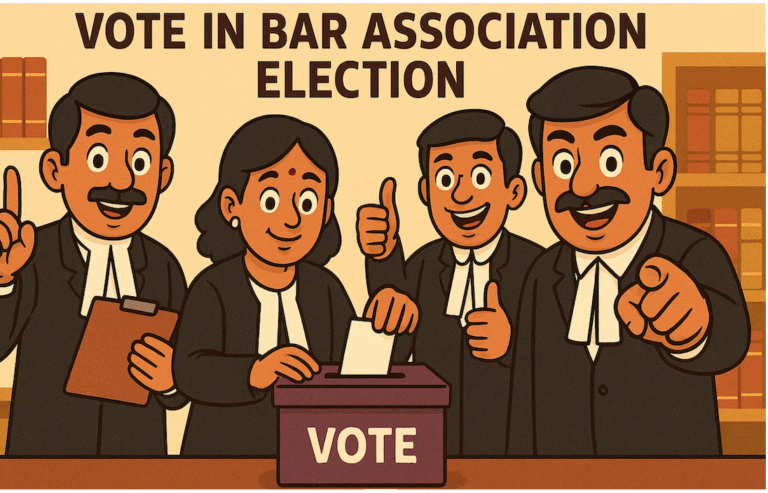
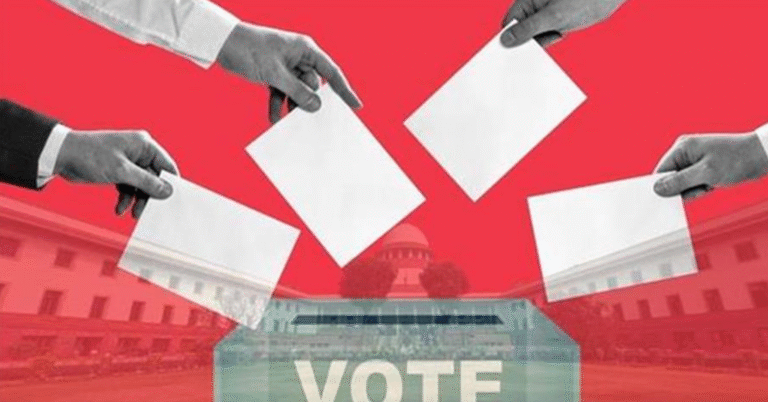
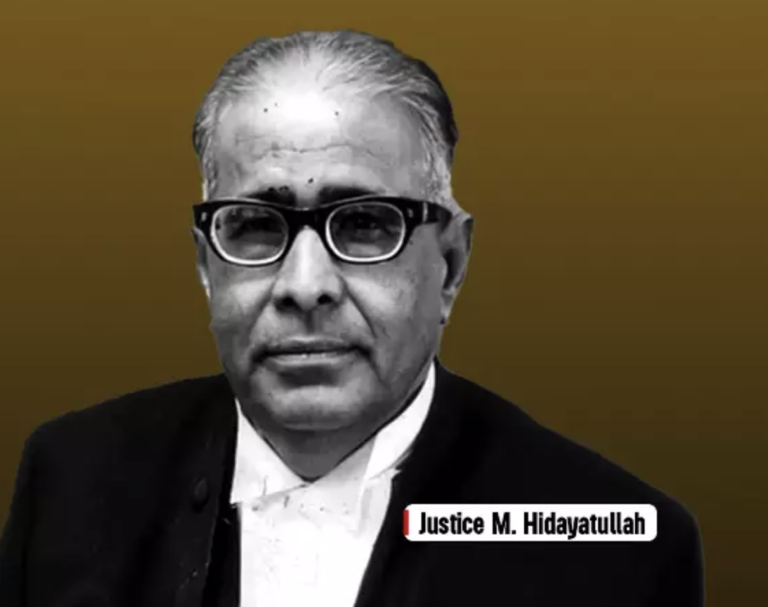

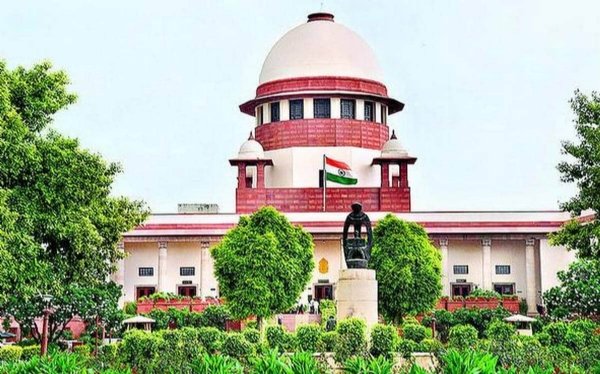
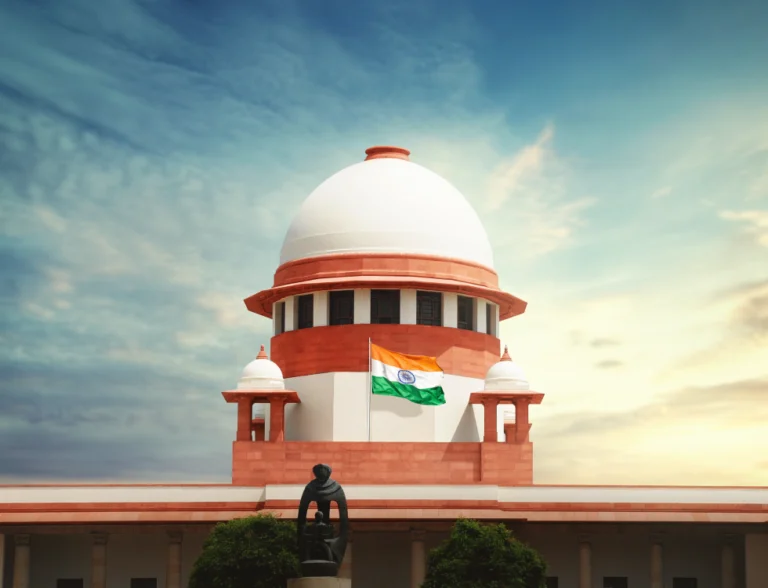
It is a very good step for maintenance of transparancy and prevention of corruption in judiciary.
Super Awesome Work@ Kudos to the team. If people like Adv Prashant Bhushan and your team is getting vicitmised by the corruption .Imagine the state of common man? Worst is some relatives of these corrupt committing multi billion dollar scam and u accountable and invincible